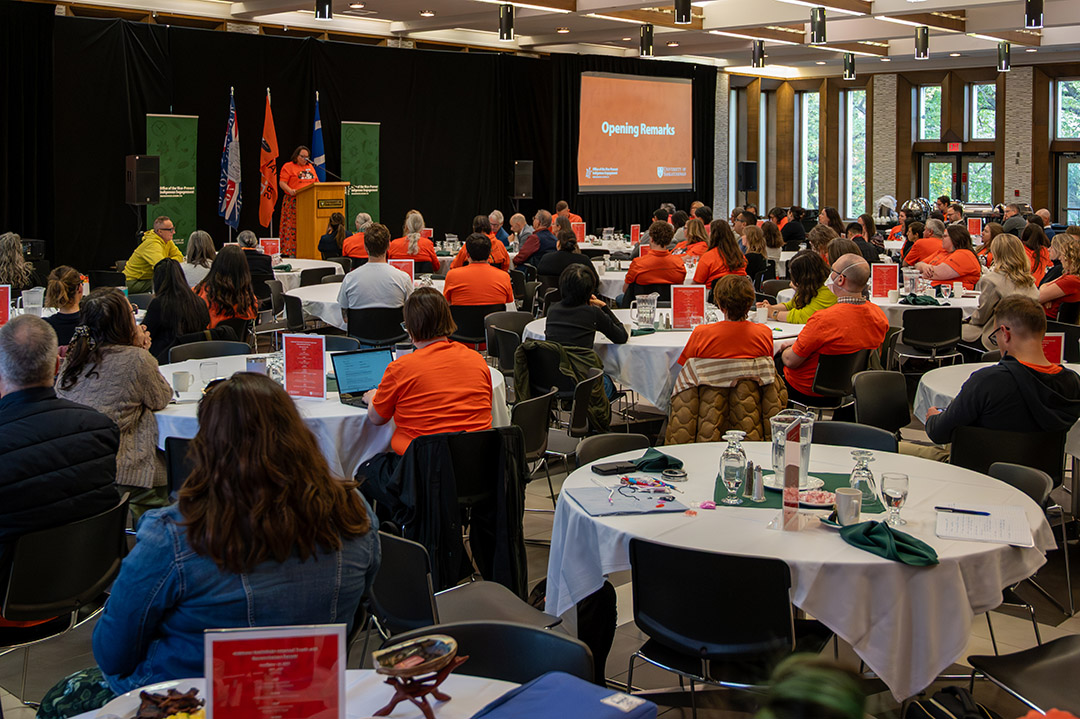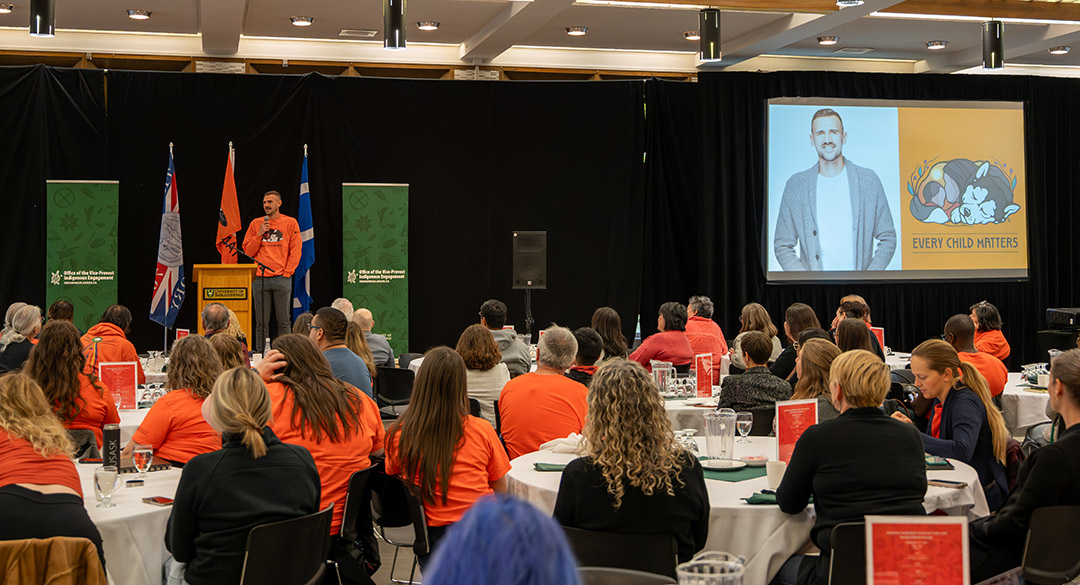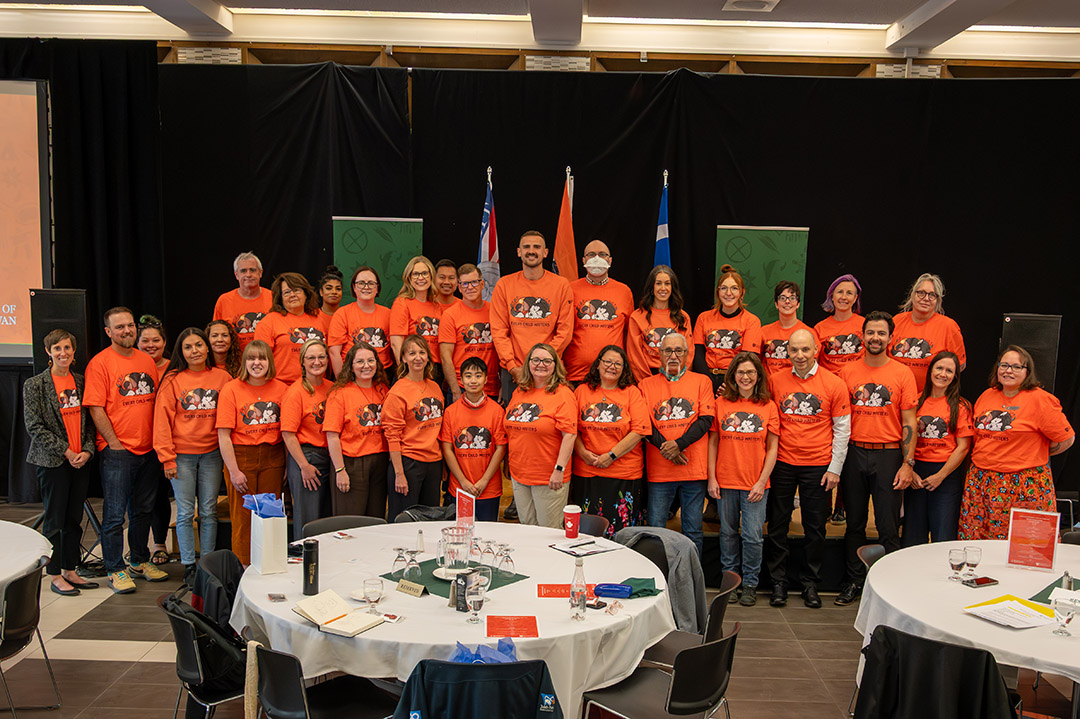
USask’s internal Truth and Reconciliation forum reflects on the past decade
Ten years ago, the University of Saskatchewan (USask) hosted a first-of-its-kind national forum: Building Reconciliation: Universities Answering the TRC’s Calls to Action.
By Ashley Dopko“It was an honour for USask to welcome Indigenous leaders, university presidents, and university student leaders from across Canada,” said Peter Stoicheff, USask president and vice-chancellor. “Together, we began to examine how universities could meaningfully respond to the Truth and Reconciliation Commission’s Calls to Action related to post-secondary education.”
Understanding the importance of this work, USask committed to ongoing dialogue and accountability, beginning a series of annual internal forums for the university community.
“In 2017, we launched the Internal Truth and Reconciliation Forum,” said Stoicheff. “It provides an opportunity for students, staff, and faculty to come together, reflect, and move forward in advancing the Truth and Reconciliation Commission’s Calls to Action.”
Later gifted the name māmowi āsohtētān (“Let’s Cross this Together”), the forum has continued annually as an open gathering for the entire USask community, with this year’s event held on Sept. 26.
“These events provide an opportunity for students, staff and faculty to listen, learn, and engage with members from across campus on speaking the Truth of past and present injustices towards Indigenous people and working towards Reconciliation,” said Dr. Angela Jaime (PhD), vice-provost Indigenous engagement.
This year’s forum aligned with the International Decade of Indigenous Languages, focusing on the role USask plays in the revitalization of Indigenous languages in Saskatchewan and Canada.

Knowledge and language keeper Dr. Kevin wâsakâyâsiw Lewis (ipkDoc) is an assistant professor in the Department of Curriculum Studies in the College of Education. In addition to developing USask’s Indigenous Language Certificate, Lewis is the founder of kâniyâsihk Culture Camps at Ministikwan Lake. He shared his expertise and experience at the forum, championing immersion school and culture camps as having a critical role in language revitalization.
“We need more Cree immersion programs. We need Indigenous language speakers in the health fields, we need translators in politics, as well as the legal field.”
This work can’t be done in isolation.
māmowi āsohtētān is a call to action.
“If you hear of a ceremony or gathering, go,” said Lewis. “We need to develop those relationships.”
“For those of you who are present, that means a lot. That’s action, and that means that you’re listening, you care, and you want to do things better. That’s why I stand here as well.”
Closing the day in a good way, Elder Norman Fleury offered critical reminders about how to move forward.
“We are connecting with our past, and if we don’t connect with our past, there is no future.”


